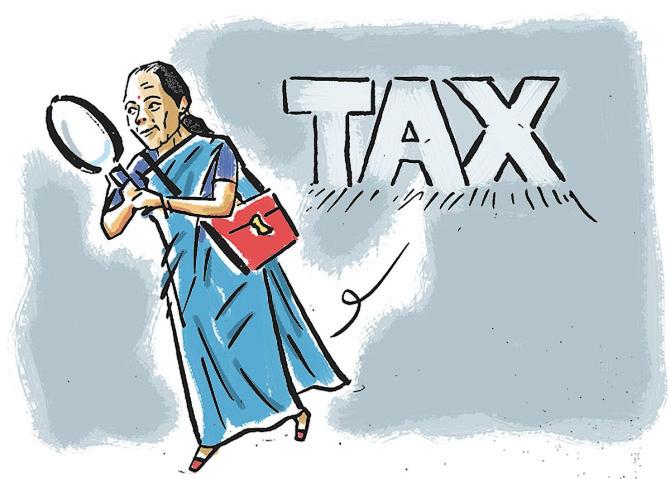 | « Back to article | Print this article |
Tax consultants and chartered accountants have started receiving a flurry of calls from their clients — both corporate and individuals — seeking clarity over changes in the reassessment regime made during the recently concluded Budget Session of Parliament.
Tax experts apprehend the amendments may lead to the income-tax (I-T) department sending out more notices.

The new provisions, effective from April 1, have extended the scope for tax sleuths to reopen the past assessments.
Earlier, the tax department could question taxpayers when they had misreported or underreported income in the form of an asset.
Now, if the department gathers evidence that a taxpayer had an “unexplained expenditure”, it can send him/her a notice seeking an explanation, and also may reopen the assessed return.
Unexplained expenditure includes money spent on a big event, expensive assets, and so on.
Even if there is any unexplained entry in the books, it could lead to a reassessment of the return.
For example, loans that were availed and repaid within a short duration.
These new provisions are part of the Finance Bill 2022.
The government had introduced a new regime in the 2021 Budget which had limited the period for issuing notices with respect to reopening past year assessments to three years, from six years earlier.
In case, the income that escaped assessment was above Rs 50 lakh, the department could go back up to 10 years.
Now, the department can go back to scrutinising the finances of a company or an individual for up to 10 years if the aggregate income or expenditure that escaped assessment over multiple years is Rs 50 lakh.
“The scope has been extended from escape income in the form of an asset, earlier, to now in the form of expenditure and book entries.
"These changes may lead to more reopening of matters due to interpretation issues,” said one of the tax consultants who received a query from a client.
“Reassessment proceedings and search proceedings have been brought in consonance.
"So now reopening can be almost automatic in search/requisition cases, at least.
"The only requirement is that the assessing officer should identify asset, entry, or expenditure in which aggregate outflow of money is more than Rs 50 lakh — spread over the 4th to 10th relevant assessment year,” said Rakesh Nangia, chairman, Nangia Andersen India.
“In search/seizure/requisition cases, the only condition is to obtain approval from prescribed authority to issue notice reopening notices.
"Hence, a mere search will be sufficient to issue notice for all the 10 assessment years.” Nangia pointed out.
The new provisions also allow the I-T department to rely on multiple sources to reopen cases, besides the data flagged by the Central Board of Direct Taxes’ (CBDT’s) risk management and objections flagged by the Comptroller and Auditor General (CAG).
Earlier, the department could reopen cases based on these two sources.
Now, it can reassess the income/expenditure in case of an objection from any audit, information from foreign tax authorities, observations in a tribunal’s or a courts’ order, etc.
Kuldip Kumar, partner, Price Waterhouse & Co, said: “The department is now armed with newer technologies like artificial intelligence and with automated processes; it can quickly relate and point out discrepancies in the financial data collected from various sources.
"In fact, these data points and the past litigation experience led to these changes in the law.”
Considering the 10-year timeline, taxpayers should carefully make the required disclosures in their return forms to avoid such notice, Kumar suggested.
He said they should also keep relevant documentary evidence related to their large financial transactions to avoid any inconvenience later.